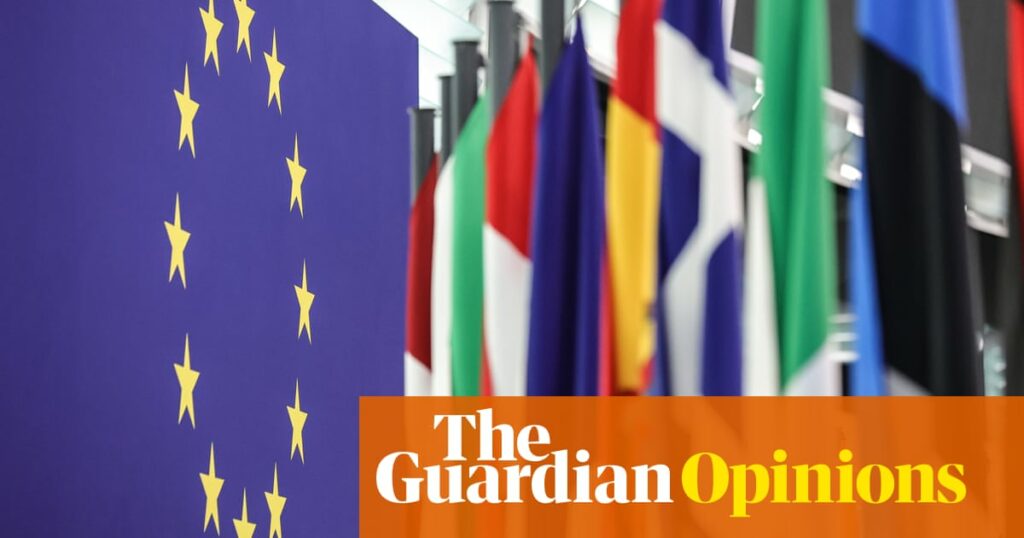From its earliest beginnings in the aftermath of war, the ambition to create a common supranational identity was at the heart of the project that was to become the European Union. One of the EU’s founding fathers, Jean Monnet, spoke of the need to make people “work together, show them that beyond their differences and geographical boundaries there lies a common interest”.
The historic expansion of the union to encompass 27 member states has been a vindication of that vision, notwithstanding the recent shadow cast by Britain’s self-harming Brexit. Polling for a major report released on Wednesday by the European Council on Foreign Relations (ECFR) finds that most citizens, in most member states, remain emotionally committed to the EU. A common response to the challenge of Covid, and the emergence of Vladimir Putin’s Russia as a threat to peace and stability, appear to have strengthened a sense that cooperation and solidarity hold the key to prosperity and security.
That will be taken as reassuring by Monnet’s modern successors in the European institutions. But the good news is overshadowed by serious caveats. In the context of turbulent and threatening times, the ECFR’s research also identifies three emerging fronts in a wider battle for Europe’s soul. For those charged with defending the core EU values values of equality and inclusion, each needs to be addressed with a great deal more vigour than has been the case up to now.
As ethnocentric nationalism gains ground across western Europe, the report found that minority-ethnic groups are feeling vulnerable, alienated and inadequately defended by mainstream parties and the media. In an emblematic act of omission that spoke volumes and should not be allowed to recur, a number of countries failed to field a single non-white candidate for the recent European elections.
Meanwhile, the dwindling of economic prospects for the young, as European economies continue to stagnate, has led to a generational crisis of faith in orthodox politics. Increasing numbers of younger EU citizens are either not bothering to vote at all or opting for extremist parties. There was confirmation of this trend last weekend, when about one in three voters aged between 16 and 24 voted for the far-right Alternative für Deutschland in a German state election – a far greater proportion than for any other party.
Finally, in central and eastern Europe – where pro-Brussels sentiment has waned in recent years – governments are counterposing an ethnically based conception of European identity to the alleged failure of “multiculturalism” in the liberal west. As panicked mainstream leaders in Berlin and Paris co-opt parts of the radical right’s agenda on asylum and immigration, they are offering a form of vindication to the nativist fearmongering of Hungary’s prime minister, Viktor Orbán, and his allies.
In the face of such challenges, the ECFR calls for a concerted push to promote a civic notion of European identity in keeping with the EU’s founding values. That will take more ethical ambition than many leaders in Brussels and national capitals have so far been willing to exhibit. It will also need to be accompanied by action to address the material discontents that have steadily eroded trust in politics. As pre-election polls in Austria point to a possible first-place finish for the far-right Freedom party on Sunday, this report should be treated as the latest reminder of the urgency of the task.
Do you have an opinion on the issues raised in this article? If you would like to submit a response of up to 300 words by email to be considered for publication in our letters section, please click here.
Source link : https://www.theguardian.com/commentisfree/2024/sep/25/the-guardian-view-on-european-identity-enlightened-ideals-need-defending
Author :
Publish date : 2024-09-25 07:00:00
Copyright for syndicated content belongs to the linked Source.
